Latest Blogs
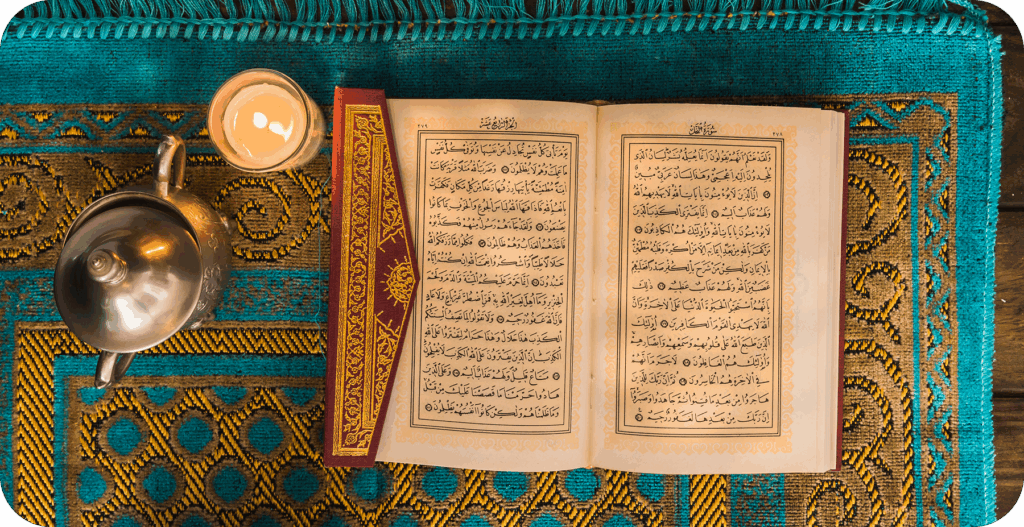
Signs Someone Needs Ruqyah: Unseen & Visible Indicators
Ruqyah is an Islamic spiritual treatment rooted in the Qur’an and Sunnah. Recognising the signs someone needs ruqyah ensures timely intervention and spiritual relief. Both visible and unseen signs indicate when ruqyah may be necessary.
Spiritual disturbances can affect physical, emotional, and mental states. The Prophet ﷺ recommended ruqyah for ailments caused by the evil eye, magic, or jinn interference. Understanding these signs aligns with faith and proper Islamic practice.
Signs Someone Needs Ruqyah: Visible Indicators
Visible signs are easier to recognise, as they manifest in behaviour, health, or daily life.
Sudden Physical Symptoms
Unexplained headaches, body pain, or weakness may occur without a medical cause. Sometimes these symptoms follow envy or negative events. Persistent, sudden issues can indicate a need for spiritual intervention through ruqyah.
Behavioural Changes
A calm person may become irritable, anxious, or withdrawn. Loss of motivation or sudden, unexplained anger outbursts may also indicate spiritual distress. Observing these changes can signal the necessity of ruqyah.
Disturbing Dreams
Repeated nightmares or disturbing visions can affect emotional health. If dreams are unusual, frightening, or cause sleep disruption, it may indicate spiritual harm requiring ruqyah.
Relationship & Social Strain
Unexpected conflicts, isolation, or repeated setbacks in personal and professional life may reflect unseen spiritual interference. Such disruptions are potential indicators that ruqyah is needed.
Signs of the Evil Eye
Aisha narrated that the Prophet ﷺ found a girl whose face had changed color due to the evil eye and instructed seeking ruqyah for her (Sahih). Visible marks, swelling, or sudden facial changes may indicate this spiritual harm.
Signs Someone Needs Ruqyah: Unseen Indicators
Unseen indicators affect the heart, mind, or spirit. These are subtle but important to recognise.
Persistent Anxiety or Fear
A constant sense of dread, restlessness, or unexplained fear may suggest unseen spiritual disturbance. Such feelings often signal the need for ruqyah.
Decline in Worship
A sudden avoidance of prayer, Qur’an recitation, or remembrance of Allah can be a spiritual sign. When a person loses connection with worship, it may indicate the heart is affected.
Unusual Dreams or Visions
Dreams of jinn, voices, or strange events can indicate spiritual interference. Ruqyah, following authentic methods, may provide relief.
Fear of Places or Times
Experiencing sudden terror or discomfort in specific locations or at night without reason can be an unseen sign of spiritual harm.
Continuous Misfortune
Repeated failures in health, wealth, or relationships, despite effort, may indicate unseen causes. While worldly efforts are necessary, spiritual harm cannot be overlooked.
Qur’an and Sunnah Evidence
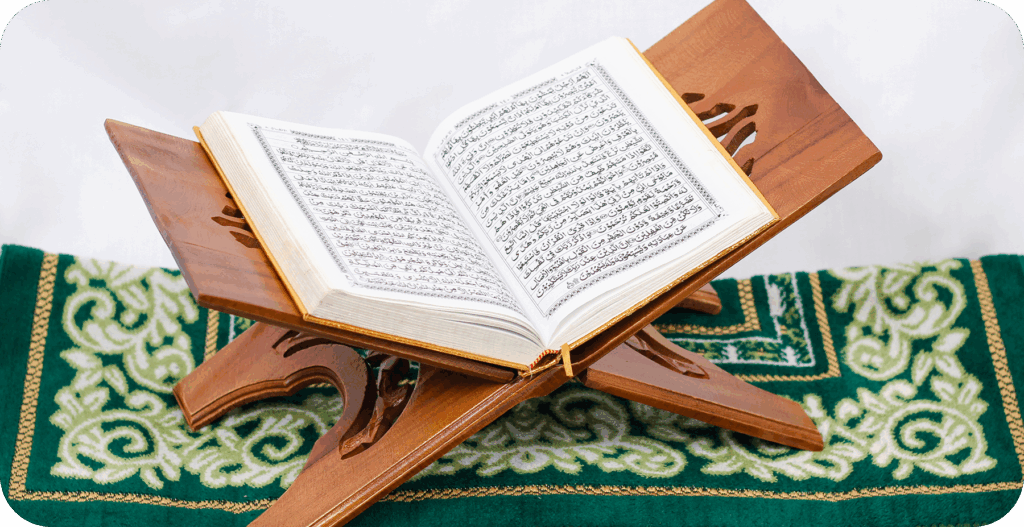
The Qur’an states:
“And We send down in the Qur’an that which is a healing and a mercy for the believers” (Surah Al-Isra 17:82)
This confirms the spiritual efficacy of ruqyah when applied correctly.
‘Aisha narrated that the Prophet ﷺ recited Al‑Mu’awwidhat over himself during illness and blew on his body (Sahih). This demonstrates the method and authenticity of ruqyah.
Umm Salamah reported that the Prophet ﷺ sought ruqyah for a girl affected by the evil eye, showing that both visible and spiritual indicators are recognised in the Sunnah (Sahih).
How to Respond When Signs Appear
Recognising these signs requires careful action:
- Consult Experts: Seek both medical and trustworthy ruqyah practitioners.
- Follow Authentic Methods: Use Qur’anic recitations and supplications only. Avoid talismans or unverified practices.
- Purify and Prepare: Make wudu, seek forgiveness, and maintain sincere faith.
- Recite and Blow: Surah Al-Fatiha, Ayat al-Kursi, Al-Ikhlas, Al-Falaq, and An-Naas are recommended.
- Patience and Reliance: Spiritual treatment may take time. Healing is ultimately from Allah.
- Avoid Innovation: Do not mix practices with shirk or superstitions.
Conclusion
Recognising both visible and unseen signs helps ensure timely ruqyah treatment. Sudden physical symptoms, behavioural changes, disturbing dreams, and persistent misfortune all indicate potential spiritual harm. Following the Qur’an and Sunnah guarantees proper, authentic healing.
Ruqyah is a means of relief, and the ultimate cure is from Allah alone. Maintaining sincere faith, consistent worship, and authentic methods ensures the treatment is effective and safe.
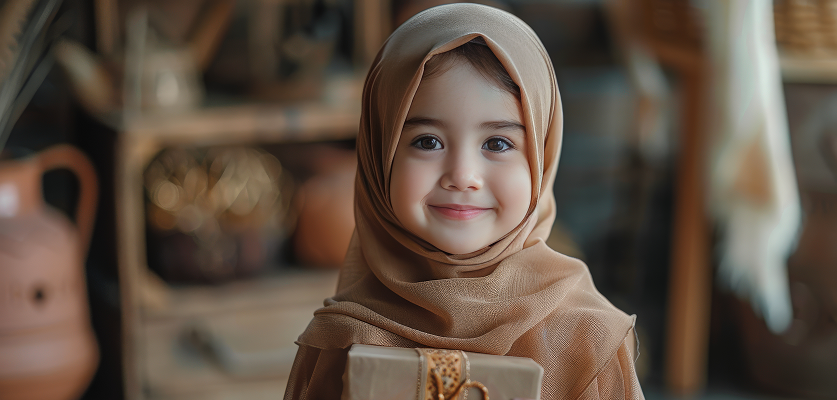
Children Spiritual Protection in Islam
In today’s fast-paced world, parents face more than physical dangers for their children; they face unseen spiritual challenges too. Evil eye, jealousy, bad company, and neglect of faith can harm a child’s heart and soul. In Islam, spiritual protection for children is not a cultural tradition; it’s an act of faith. The Qur’an and Sunnah give clear guidance on how parents can protect their children’s souls through prayer, remembrance, and righteous upbringing.
This blog explains how Islam protects children’s spirituality through dua, ruqyah, and daily wazaif based on Qur’an and Sunnah.
Understanding Children Spiritual Protection in Islam
Islam views children as amanah, a sacred trust from Allah ﷻ. Every parent is responsible not only for feeding and clothing their children but also for nurturing their souls.
Narrated Ibn `Umar:
I heard Allah’s Messenger (ﷺ) saying, “All of you are Guardians.” Yunis said: Ruzaiq bin Hukaim wrote to Ibn Shihab while I was with him at Wadi-al-Qura saying, “Shall I lead the Jumua prayer?” Ruzaiq was working on the land (i.e. farming) and there was a group of Sudanese people and some others with him; Ruzaiq was then the Governor of Aila. Ibn Shihab wrote (to Ruzaiq) ordering him to lead the Jumua prayer and telling him that Salim told him that `Abdullah bin `Umar had said:
“I heard Allah’s Apostle saying, ‘All of you are guardians and responsible for your wards and the things under your care. The Imam (i.e. ruler) is the guardian of his subjects and is responsible for them and a man is the guardian of his family and is responsible for them. A woman is the guardian of her husband’s house and is responsible for it. A servant is the guardian of his master’s belongings and is responsible for them.’ I thought that he also said, ‘A man is the guardian of his father’s property and is responsible for it. All of you are guardians and responsible for your wards and the things under your care.” (Sahih al-Bukhari 893)
Thus, protecting children spiritually is part of a parent’s worship. When parents raise children who remember Allah and avoid sin, they fulfill one of the highest forms of worship.
Why Children Spiritual Protection in Islam Matters
Spiritual protection isn’t limited to safeguarding children from black magic or evil eye; it also means guarding their hearts from arrogance, jealousy, and heedlessness. In an age where distractions dominate, children can easily lose connection with their Creator.
Furthermore, Allah reminds us:
“O you who have believed, protect yourselves and your families from a Fire whose fuel is people and stones, over which are [appointed] angels, harsh and severe; they do not disobey Allah in what He commands them but do what they are commanded.” (Surah At-Tahrim, 66:6)
Therefore, providing children with spiritual protection in Islam is an essential part of parental duty; it ensures that their hearts stay soft, their minds pure, and their souls illuminated by faith.
Qur’anic Foundations for Children Spiritual Protection in Islam
The Qur’an provides numerous examples of parents praying for their children’s spiritual well-being. Prophet Ibrahim (AS) made dua:
“My Lord, make me an establisher of prayer, and [many] from my descendants. Our Lord, and accept my supplication.” (Surah Ibrahim, 14:40)
Likewise, the mother of Maryam (AS) prayed:
“But when she delivered her, she said, “My Lord, I have delivered a female.” And Allah was most knowing of what she delivered, “And the male is not like the female. And I have named her Mary, and I seek refuge for her in You and [for] her descendants from Satan, the expelled [from the mercy of Allah].” (Surah Aal-Imran, 3:36)
These prayers reflect the foundation of children’s spiritual protection in Islam, seeking Allah’s refuge before any harm occurs. Parents are therefore encouraged to make dua for protection even before a child’s birth.
Daily Duas for Children Spiritual Protection in Islam

The Prophet Muhammad ﷺ frequently recited duas for protection over his grandsons Hasan and Husayn (رضي الله عنهما), saying:
“I seek refuge for you both in the perfect words of Allah, from every devil and every poisonous pest, and from every evil eye.”
(Sunan Abu Dawood, 4737)
This authentic dua remains one of the most effective means of spiritual protection for children in Islam. Parents can recite it daily, especially before bedtime or when their children step outside the home.
Additionally, Surah Al-Ikhlas, Al-Falaq, and An-Nas (known as Al-Mu’awwidhat) should be recited over children, as the Prophet ﷺ used them to seek protection for himself and his family.
Ruqyah and Wazaif for Children Spiritual Protection in Islam
Ruqyah (spiritual healing through Qur’anic recitation) is an established practice in Islam. It’s not superstition, it’s faith in action. For children, ruqyah can be performed by reciting Qur’anic verses like:
- Surah Al-Fatiha
- Ayat al-Kursi (Surah Al-Baqarah, 2:255)
- Last two verses of Surah Al-Baqarah (2:285–286)
- Surah Al-Ikhlas, Al-Falaq, and An-Nas
After reciting, gently blow over the child. This Sunnah method was practiced by the Prophet ﷺ and his companions.
Moreover, regular recitation of these verses protects not only from physical harm but also from unseen spiritual influences that may disturb a child’s peace and sleep.
Building Children’s Faith Through Dhikr and Salah
Beyond ruqyah, one of the most powerful shields is dhikr, the remembrance of Allah. Teaching children SubhanAllah, Alhamdulillah, and Allahu Akbar connects them deeply to faith from a young age.
As children grow, parents should involve them in Salah. The Prophet ﷺ said:
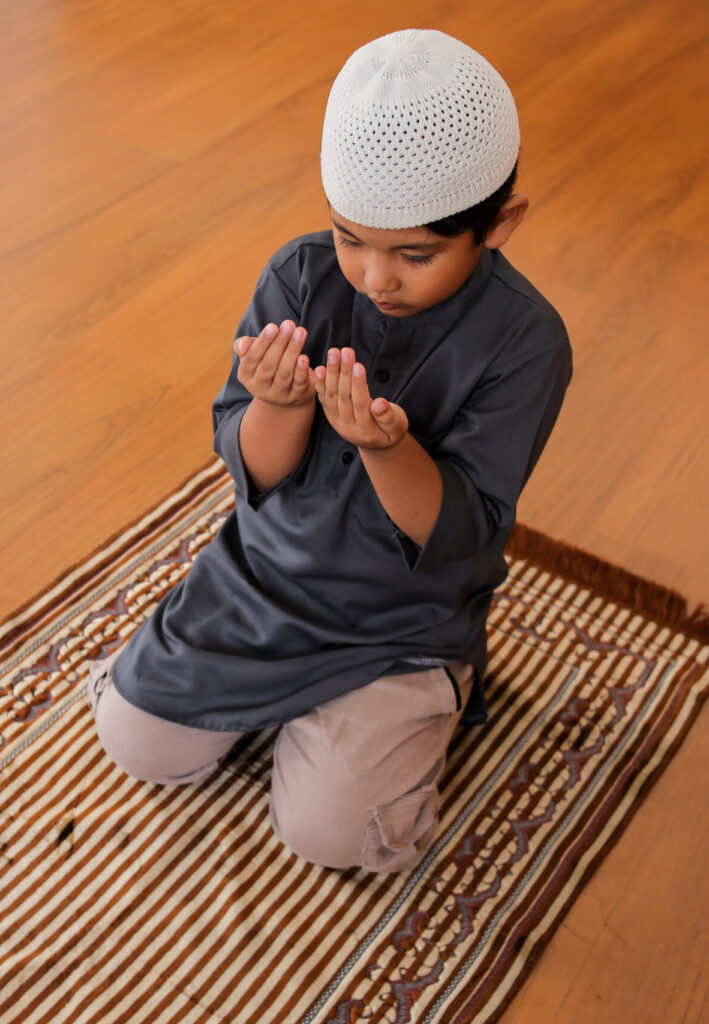
“Command your children to pray when they become seven years old, and beat them for it (prayer) when they become ten years old; and arrange their beds (to sleep) separately.” (Sunan Abu Dawood, 495)
This command is not merely about routine; it’s about nurturing mindfulness and spiritual discipline. Consistent dhikr and salah build a protective shield around their hearts, keeping them safe from sin and despair.
Protecting Children from Evil Eye and Hasad
The evil eye (al-‘ayn) is real. The Prophet ﷺ said:
“The evil eye is real; if anything were to overtake the divine decree, it would be the evil eye.”
(Sahih Muslim, 2188)
Thus, parents must regularly seek Allah’s protection from envy and unseen harm. Simple daily acts like saying MashaAllah upon seeing children’s blessings, reciting the Mu’awwidhatayn, and giving charity help repel envy and ensure Allah’s barakah stays upon the family.
Creating a Spiritually Safe Home Environment
Spiritual protection also involves the atmosphere of the home. A house filled with Qur’an recitation, adhan, and remembrance becomes guarded by angels. Conversely, neglecting dhikr or playing inappropriate media invites negativity.
Therefore, parents should make their homes centers of worship. Encourage Qur’an reading sessions, discuss prophetic stories, and keep Islamic calligraphy or duas visible reminders that Allah’s presence governs every moment.
Teaching Moral Values as Spiritual Protection
Faith grows stronger when coupled with good character. Teach children the importance of honesty, gratitude, kindness, and patience. These virtues form their moral armor. The Prophet ﷺ said:
“The most beloved of you to me are those who have the best manners.”
(Sahih al-Bukhari, 3559)
In Islam, manners and spirituality are intertwined. When children live with integrity and humility, they attract Allah’s mercy and remain spiritually guarded.
Modern Threats to Children Spiritual Protection in Islam
In the digital era, constant exposure to unfiltered content can weaken faith. Therefore, parents must monitor what their children watch, follow, and read. Encourage Islamic apps, Qur’an listening sessions, and online lectures by authentic scholars.
Balance is key, shielding them from harm while nurturing curiosity and spiritual reflection. The Prophet ﷺ said:
“A time will come when holding onto your faith will be like holding onto hot coal.” (Sunan al-Tirmidhi, 2260)
That time is now, and the solution lies in consistent dhikr, prayer, and parental involvement.
Practical Routine for Children Spiritual Protection in Islam
To ensure consistency, establish a daily spiritual routine:
- Morning: Recite Ayat al-Kursi and Mu’awwidhat before leaving home.
- Evening: Make dhikr together as a family—33 SubhanAllah, 33 Alhamdulillah, 34 Allahu Akbar.
- Before Sleep: Recite Surah Al-Ikhlas, Al-Falaq, and An-Nas, then blow over the children.
- Weekly: Offer Friday duas for the family’s faith and protection.
- Monthly: Give charity (sadaqah) on behalf of the children for continuous blessings.
Such spiritual habits build lifelong awareness of Allah and fortify a child’s soul against unseen harm.
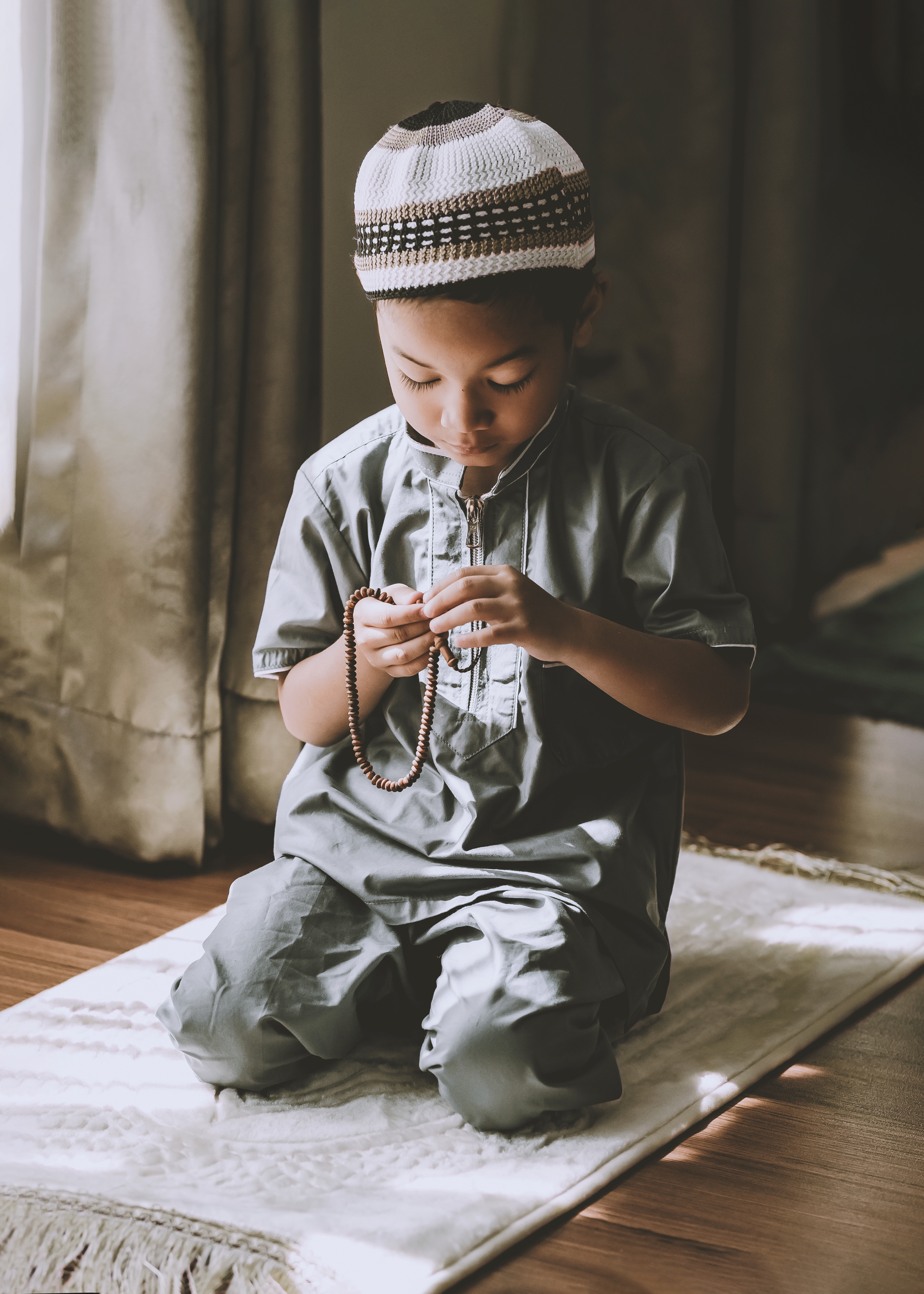
Common Mistakes in Seeking Children Spiritual Protection in Islam
Sadly, some people turn to unverified amulets, charms, or taweez without understanding Islamic rulings. Authentic ruqyah involves only the Qur’an and Sunnah, not numerology, symbols, or paid rituals. The Prophet ﷺ warned:
“Whoever wears an amulet has committed shirk.” (Musnad Ahmad, 17440)
Hence, parents should rely solely on Allah for spiritual protection. True reliance (tawakkul) means using only those methods approved by revelation.
Duas for Parents to Strengthen Their Children’s Faith
Parents should constantly pray for their children’s righteousness. Some powerful duas include:
رَبِّ اجْعَلْنِي مُقِيمَ الصَّلَاةِ وَمِن ذُرِّيَّتِي
“My Lord, make me an establisher of prayer, and from my descendants.”
(Surah Ibrahim, 14:40)
رَبَّنَا هَبْ لَنَا مِنْ أَزْوَاجِنَا وَذُرِّيَّاتِنَا قُرَّةَ أَعْيُنٍ
“Our Lord, grant us from our spouses and offspring comfort to our eyes and make us leaders of the righteous.”
(Surah Al-Furqan, 25:74)
These duas, when recited sincerely, invite divine protection and barakah into a family’s spiritual life.
Conclusion: Building Lifelong Spiritual Protection
Ultimately, children’s spiritual protection in Islam begins with mindful parenting. It’s not about fear, it’s about faith. Through daily dhikr, regular prayer, and constant reliance on Allah, families can create an environment of divine safety and serenity.
When children grow up surrounded by remembrance and guided by Islamic values, their hearts remain resilient against the world’s trials. True protection comes not from worldly precautions, but from the light of faith that shines within a child’s heart.
If you wish to strengthen your child’s spiritual protection or seek guidance on authentic ruqyah and wazaif, reach out to Roohani Ilaj Center.

Dhikr in Islam: Path to Inner Spiritual Healing
In today’s fast-paced and emotionally demanding world, many Muslims experience inner emptiness, anxiety, and a loss of spiritual direction. Despite achieving material success, countless people still feel distant from Allah and struggle to find peace within. This is where the essence of Dhikr in Islam, along with Roohaniyat (spirituality) and Tasawwuf (Islamic mysticism or Sufism), becomes deeply significant. Ultimately, these spiritual dimensions guide the believer back to the remembrance of Allah, nurturing emotional balance and lasting serenity.
Understanding Dhikr in Islam and Its Connection to Roohaniyat
In Islam, Roohaniyat refers to the purification and elevation of the soul (tazkiyah), while Tasawwuf represents the practical path toward attaining closeness to Allah. Both of these are rooted in the Qur’an and Sunnah, not in superstition or blind imitation.
Dhikr in Islam stands at the heart of Roohaniyat; it is the remembrance that connects the heart to the Divine. When believers engage in sincere remembrance, their souls find clarity, peace, and strength to overcome emotional and spiritual turbulence.
The Qur’an beautifully reminds us:

“Those who have believed and whose hearts are assured by the remembrance of Allah. Unquestionably, by the remembrance of Allah hearts are assured.”
(Surah Ar-Ra’d, 13:28)
Thus, Dhikr in Islam is not simply a ritual but a lifeline for the heart, a reminder that ultimate peace comes only through constant connection with the Creator.
What Is Tasawwuf and Its Relationship with Dhikr
Tasawwuf, or Islamic mysticism, focuses on the inner journey of transforming the self from the nafs al-ammārah (ego that commands evil) to the nafs al-mutma’innah (soul at peace).
The Prophet ﷺ said:
“Verily, in the body there is a piece of flesh; if it is sound, the whole body is sound, and if it is corrupt, the whole body is corrupt. Truly, it is the heart.”
(Sahih al-Bukhari, 52; Sahih Muslim, 1599)
In essence, Dhikr in Islam purifies the heart. Through remembrance, the believer polishes the soul from arrogance, jealousy, greed, and hatred, replacing them with sincerity, patience, and humility. Indeed, the path of Tasawwuf cannot exist without Dhikr, for it is through remembrance that the heart becomes illuminated and the believer attains nearness to Allah.
Tazkiyah: Purifying the Soul Through Dhikr
Tazkiyah, meaning purification and growth, is the foundation of all spiritual development. Just as a gardener removes weeds so plants can flourish, a believer removes sins and inner darkness through repentance, du‘a, and Dhikr in Islam.
Allah says:
“He who purifies it will prosper, and he who suppresses it will be ruined.”
(Surah Ash-Shams, 91:9–10)
Through tazkiyah, the heart becomes receptive to divine guidance, allowing the believer to rise above worldly distractions. Moreover, regular dhikr, combined with humility and repentance, purifies the soul and helps maintain spiritual balance.
How Dhikr in Islam Heals the Mind and Heart
Modern psychology often emphasizes mindfulness and gratitude as keys to emotional well-being. Interestingly, Islam has taught these principles for over 1,400 years through Dhikr (remembrance) and Shukr (thankfulness).
When practiced sincerely, Dhikr in Islam provides healing for both the mind and the soul. It reduces anxiety, replaces fear with faith, and transforms sadness into tranquility. The Prophet ﷺ would often retreat for khalwah (spiritual solitude) and engage in long prayers during tahajjud to strengthen his connection with Allah.
Moreover, Tasawwuf teaches essential spiritual attitudes such as qana‘ah (contentment) and tawakkul (trust in Allah). These virtues help believers find calm even amid chaos, ensuring emotional resilience through consistent remembrance of Allah.
Authentic Spiritual Practices Rooted in Dhikr in Islam
True Roohaniyat and Tasawwuf are always grounded in revelation. Scholars have identified several authentic practices that cultivate inner peace through the remembrance of Allah:
1. Dhikr (Remembrance of Allah)
Dhikr in Islam is the core of spiritual life. It keeps the tongue and heart alive with divine remembrance, strengthening faith and bringing tranquility.
The Prophet ﷺ said:
“Keep your tongue moist with the remembrance of Allah.”
(Jamiʿ at-Tirmidhi, Hadith no. 3375)
Common forms of dhikr include reciting SubhanAllah, Alhamdulillah, Allahu Akbar, and La ilaha illa Allah. These phrases, when recited with reflection, bring immense blessings and elevate spiritual consciousness.
2. Muraqabah (Spiritual Reflection)
Muraqabah is the awareness that Allah is constantly watching. This mindfulness refines one’s intentions, purifies the heart, and inspires sincerity in every act.
3. Suhbah (Company of the Righteous)
The people one associates with shape their heart and character. Being in the company of righteous scholars and spiritually guided individuals nurtures genuine Dhikr in Islam, keeping one steadfast on the path of truth.
4. Mujahadah (Striving Against the Nafs)
Islamic spirituality involves continuous self-struggle, resisting anger, envy, and arrogance. This striving refines the believer’s heart and strengthens their connection with Allah.
5. Istighfar (Seeking Forgiveness)
Frequent repentance purifies the soul and brings the believer closer to Allah. The Prophet ﷺ, despite being sinless, sought forgiveness more than seventy times daily.
True Dhikr in Islam vs. False Spirituality

Sadly, some exploit spirituality by offering “instant healing” through unverified taweez, numerology, or fabricated rituals. True Dhikr in Islam stands in direct contrast to such practices.
Authentic Roohaniyat never contradicts the Qur’an or Sunnah and never seeks worldly gain. It requires patience, self-discipline, and knowledge.
False spirituality often involves:
- Blind obedience to self-proclaimed “gurus”
- Superstitious innovations (bid‘ah)
- Emotional manipulation or false promises of miracles
By contrast, Dhikr in Islam promotes humility, knowledge, and remembrance that elevates the believer’s connection with Allah alone.
Scholars Who Revived Dhikr and Tasawwuf
Throughout Islamic history, great scholars have revived and explained the true essence of spiritual purification through remembrance:
- Imam Al-Ghazali (rh): Unified Shariah and Tasawwuf, emphasizing that knowledge transforms only when it purifies the heart.
- Jalaluddin Rumi (rh): Expressed divine love and unity with Allah through poetry rooted in Qur’anic wisdom.
- Shaykh Abdul Qadir Jilani (rh): Highlighted sincerity, service, and unwavering trust in Allah.
- Hasan al-Basri (rh): One of the earliest ascetics who warned against worldly attachment and encouraged pure remembrance.
Their teachings confirm that Tasawwuf and Dhikr in Islam aim not at isolation but at living with a heart connected to Allah while engaging positively with the world.
Maintaining Balance in Dhikr and Spirituality
Islam always calls for balance, neither neglecting the soul nor falling into excess. Some ignore dhikr entirely, while others pursue spirituality without proper knowledge. The Prophet ﷺ taught moderation in worship, reflection, and service to humanity.
As the Qur’an states:
“And thus we have made you a just community that you will be witnesses over the people and the Messenger will be a witness over you…”
(Surah Al-Baqarah, 2:143)
True Dhikr in Islam encourages steady remembrance, righteous deeds, and gratitude not extreme asceticism or careless indulgence.
Benefits of Practicing Dhikr in Islam
When practiced regularly, dhikr transforms every part of life:
- Inner Peace: Constant remembrance calms the heart and mind.
- Stronger Faith: Connection with Allah deepens through repetition and reflection.
- Moral Strength: Dhikr nurtures honesty, patience, and humility.
- Emotional Stability: Trust in Allah replaces anxiety and fear.
- Social Harmony: Remembrance fosters compassion and forgiveness among people.
These benefits ripple outward, strengthening families, communities, and society as a whole.
Modern Relevance of Dhikr in Islam
In an age dominated by distractions and screens, Dhikr in Islam revives spiritual focus. It helps Muslims reclaim stillness, gratitude, and emotional balance.
Interestingly, scientific studies on mindfulness now confirm what Islam has always taught: that reflection, gratitude, and prayer reduce stress and anxiety. Dhikr, performed with presence and sincerity, restores mental and emotional equilibrium.
Furthermore, Dhikr in Islam enhances self-awareness, helping believers live with purpose, patience, and faith amid the noise of modern life.
Warnings About Misguided Practices
Unfortunately, not everyone claiming spiritual power follows authentic Islamic teachings. Many misuse Tasawwuf for fame or material gain, promoting taweez, numerology, or “energy” rituals that contradict Shariah.
Muslims are advised to verify the authenticity of any spiritual practice. The Prophet ﷺ warned that every innovation leads astray. Therefore, Dhikr in Islam must always align with the Qur’an and Sunnah.
Connecting with Authentic Dhikr and Islamic Healing
Those who seek spiritual healing should begin with the simplest yet most powerful act, Dhikr in Islam. Indeed, through remembrance, prayer, and repentance, Allah opens doors to healing and guidance.
For verified wazaif, duas, and Qur’anic supplications, you may visit:
Rohani Wazaif – Roohani Ilaj Center
You can also deepen your understanding by studying through trusted scholars and authentic institutions such as Al-Maghrib Institute and Bayyinah, where spirituality remains grounded in Qur’an and Sunnah.
Conclusion

In essence, Dhikr in Islam represents the core of spiritual healing, the remembrance that purifies the soul, strengthens faith, and connects believers with their Creator.
True Roohaniyat lies not in rituals or charms, but in a sincere heart that constantly remembers Allah through prayer, gratitude, and repentance.
May Allah grant us hearts full of remembrance, souls full of peace, and lives illuminated by true dhikr. Ameen.

Farakhi-e-Rizq: Spiritual & Practical Tips for Barakah
Every believer seeks barakah (blessings) and farakhi-e-rizq (ease and abundance in sustenance). Yet, there are times when, despite hard work, one feels financially stuck as if something unseen blocks progress. Islam acknowledges that rizq (sustenance) is not merely material; it is spiritual too. True rizq includes health, peace of mind, family stability, and contentment, all of which are from Allah’s decree.
This blog explores how Islam teaches believers to identify and remove blockages in rizq through spiritual means such as ruqyah and wazaif, alongside practical steps like honesty, gratitude, and charity. By the end, you’ll understand how to align both your worldly efforts and spiritual practices to invite divine blessings.
Understanding the Concept of Rizq in Islam
In Islam, rizq refers to everything that sustains life: money, food, knowledge, love, and peace. Allah says in the Qur’an:
“And there is no creature on earth but that upon Allah is its provision, and He knows its place of dwelling and place of storage. All is in a clear register.”
(Surah Hud, 11:6)
This verse reminds us that Allah guarantees sustenance. However, the form, timing, and quantity depend on one’s faith, deeds, and divine wisdom. When a person faces a financial struggle or sees continuous blockages, Islam encourages self-reflection both materially and spiritually.
Sometimes, blockages occur due to poor management or worldly causes. At other times, they result from spiritual factors, such as sins, envy (hasad), or neglecting the remembrance of Allah. Recognizing this balance is the key to solving rizq-related problems effectively.
Signs of Rizq Blockage
While each individual’s situation differs, certain signs often indicate a blockage in sustenance:

- Continuous financial loss without a clear reason.
- Delays in income, job approval, or business growth.
- Unexplained tension in the workplace or family finances.
- Feeling of scarcity despite earning well.
- Frequent breakdown of plans related to money or livelihood.
These signs don’t always mean spiritual interference; sometimes they reflect habits, spending patterns, or life tests. However, consistent patterns of hardship with no visible cause might call for introspection and roohani ilaj (spiritual healing).
Spiritual Causes Behind Rizq Blockages
Islam teaches that sustenance can be affected by both spiritual and moral factors. Let’s look at the most common ones mentioned in the Qur’an and Hadith:
1. Sins and Disobedience
It was narrated from Thawban that the Messenger of Allah (ﷺ) said:
“Nothing increases one’s life span except righteousness and nothing repels the Divine decree except supplication, and a man may be deprived of provision by a sin that he commits.”
(Sunan Ibn Majah, 4022)
Sins such as dishonesty, arrogance, or withholding zakat can cause spiritual blockages. Repentance (taubah) and sincere effort to reform open the gates of rizq again.
2. Neglecting Salah and Dhikr
Abandoning obligatory prayers or failing to remember Allah regularly hardens the heart and invites difficulty. The Qur’an says:
“But whosoever turns away from My Message, verily for him is a life narrowed down, and We shall raise him up blind on the Day of Judgment.”
(Surah Taha, 20:124)
3. Envy (Hasad) and Evil Eye (‘Ayn)
Jealousy from others or one’s own envy can create unseen disturbances in sustenance. Consequently, ruqyah verses help cleanse and protect against these harmful energies.
4. Relying on Haram Sources
Earning through unlawful means, deceit, or exploitation may seem profitable short term, but it removes barakah (blessing). The Prophet ﷺ warned that unlawful income prevents prayers from being accepted.
Ruqyah for Farakhi-e-Rizq Blockages
Ruqyah, the recitation of Qur’anic verses and supplications for healing, is among the most powerful ways to remove spiritual hindrances. When performed correctly, it brings peace, protection, and divine ease.
Here are some recommended ruqyah verses for farakhi-e-rizq:
- Surah Al-Waqi’ah – The Prophet ﷺ said that whoever recites it nightly will never face poverty.
- Ayat al-Kursi (2:255) – For protection and abundance.
- Surah Al-Falaq (113) and Surah An-Naas (114) – To remove envy, magic, and evil eye.
- Surah Al-Baqarah (2:261–262) – Encourages charity and generosity, promising multiplied reward.

Perform ruqyah by reciting these verses with full concentration and trust in Allah. Blow lightly over water and sprinkle it in your home or business premises. You may also recite while placing your hand on your heart or financial documents, sincerely seeking Allah’s help.
Wazaif for Farakhi-e-Rizq
Islamic wazaif (remembrances and supplications) are practical tools to invite Allah’s mercy and open doors of prosperity. When performed consistently and with clean intention, they bring calmness and increase barakah.
Here are some beneficial wazaif for rizq:
- “Ya Razzaq, Ya Wahhab” — Recite daily after Fajr 100 times to attract halal rizq.
- “Astaghfirullah Rabbi Min Kulli Dhanbin wa Atubu Ilaih” — Regular istighfar removes sins and invites ease.
- “SubhanAllahi wa bihamdihi, SubhanAllahil Azeem” — The Prophet ﷺ said these words bring sustenance and forgiveness.
- Durood Shareef (Salawat) — Recite frequently; it opens doors of mercy and provision.
- Surah Al-Mulk (67) and Surah Ar-Rahman (55) — Promote gratitude and reflection on Allah’s blessings.
For more authentic Qur’anic and prophetic supplications, visit our Rohani Wazaif page.
Practical Steps for Farakhi-e-Rizq
Spiritual remedies are most effective when combined with practical action. Islam emphasizes balance, praying while also planning, reciting while also striving. Here’s how to make both worlds meet:
1. Ensure Halal Earnings
Avoid interest-based income or deceit. Moreover, Allah promises that He replaces what is left for His sake with something far better.
2. Give Regular Charity
Charity purifies wealth and expands rizq. The Prophet ﷺ said:
“Charity does not decrease wealth.”
(Sahih Muslim, 2588)
3. Maintain Gratitude
Moreover, regularly thanking Allah for what you already have multiplies your blessings.
“If you are grateful, I will surely increase you.”
(Surah Ibrahim, 14:7)
4. Strengthen Family Ties
Maintaining kinship is directly linked to increased sustenance. The Prophet ﷺ said:
“Whoever wishes to be granted more provision and a longer life should maintain good ties with his relatives.”
(Sahih Bukhari, 5986)
5. Manage Time and Finances Wisely
Budgeting, punctuality, and avoiding extravagance bring stability. Waste (israf) removes barakah even from abundant income.
Stories of Spiritual and Financial Transformation
Indeed, throughout Islamic history, many people have experienced farakhi-e-rizq through consistent remembrance and reliance on Allah.
A merchant once complained to Imam Hasan al-Basri (رحمه الله) about poverty. He advised him to seek forgiveness (istighfar) often. Another man complained of infertility, and the same advice was given. When asked why, Hasan al-Basri replied,
“Allah says: ‘Ask forgiveness of your Lord; He is Ever-Forgiving. He will send rain from the sky upon you, increase you in wealth and children.’” (Surah Nuh, 71:10–12)
Ultimately, this story teaches that istighfar is a universal key to removing every blockage to wealth, health, and happiness.
Combining Effort and Tawakkul (Trust in Allah)
True reliance (tawakkul) means striving while trusting the outcome to Allah. Islam rejects laziness disguised as spirituality. One must seek means, plan, and work ethically, but always remember that Allah alone provides results.
‘Umar bin Al-Khattab narrated that the Messenger of Allah (s.a.w) said:
“If you were to rely upon Allah with the required reliance, then He would provide for you just as a bird is provided for, it goes out in the morning empty, and returns full.” (Tirmidhi, 2344)
Hence, believers are encouraged to pursue lawful means actively while staying spiritually connected.
Avoiding Common Misconceptions About Farakhi-e-Rizq
While wazaif and ruqyah are powerful, they should never replace effort or be used superstitiously. Unfortunately, some individuals sell false “taweez for rizq” or make exaggerated claims. Islam strictly prohibits such practices unless based on Qur’anic verses and authentic duʿāʾs. Always verify the source before using any spiritual method.
Moreover, believing that taweez or charms independently bring wealth is a form of shirk (associating partners with Allah). The true power lies only with the Creator.
Therefore, for authentic scholarly guidance, you can confidently refer to this verified source on Islamic rulings about sustenance and barakah:
Islam Q&A: Increasing Rizq through Permissible Means.
Mindset for Sustained Prosperity
Wealth is not only what fills your pocket, it’s what fills your heart. Islam redefines success as contentment (qana‘ah). A person with faith, health, and gratitude is wealthier than a millionaire without peace.
Adopt these three attitudes to sustain your rizq:
- Be Patient: Rizq increases gradually; haste can ruin blessings.
- Be Thankful: Gratitude multiplies what you have.
- Be Generous: The more you give, the more Allah gives back.
Conclusion
Farakhi-e-Rizq is both a spiritual and practical journey. To open the doors of sustenance, one must combine repentance, ruqyah, wazaif, charity, and hard work. Indeed, every verse recited, every coin given, and every sin repented for ultimately contribute to removing the unseen blockages in one’s rizq. Furthermore, remember that Allah is Ar-Razzaq, the Ultimate Provider.
He withholds and grants as a test, not as punishment. Therefore, never lose hope. Seek His help, trust His timing, and continue striving with sincerity. InshaAllah, your sustenance will expand in both form and blessings.

Marriage Problems: Ruqyah & Wazaif for Healing
Marriage in Islam is a sacred bond built on love, mercy, and understanding. However, like any relationship, it can face challenges both worldly and spiritual. While some problems arise from communication or lifestyle differences, others may stem from unseen causes such as envy (hasad), black magic (sihr), or jinn interference. That’s where Ruqyah & Wazaif for Marriage Problems come in, as Islam provides guidance for all of these situations through Ruqyah and Wazaif, offering believers ways to seek Allah’s help for healing and harmony.
This blog will explain the spiritual causes of marital obstacles, authentic Islamic remedies, and practical steps to restore peace and affection in a marriage, all in light of the Qur’an and Sunnah.
Understanding Spiritual Causes of Marriage Problems
In Islam, the unseen world (al-ghayb) includes realities like jinn, envy, and black magic. The Qur’an acknowledges these influences, reminding believers to seek refuge in Allah alone. Sometimes, a couple may experience sudden conflicts, emotional distance, or unexplained tension without any clear reason. While not every problem is spiritual, the Prophet ﷺ taught that envy and evil eye (‘ayn) are real and can harm relationships.
However, it’s essential to avoid paranoia. Islam warns against assuming every disagreement has a supernatural cause. Balance is key; one must assess with both spiritual insight and rational judgment.
How Ruqyah Can Help Fix Marriage Problems
Ruqyah, the recitation of Qur’anic verses and authentic supplications for healing, is one of the most effective ways to combat spiritual disturbances in marriage. It must always be done within the limits of Shariah, avoiding any form of shirk or unverified practice.
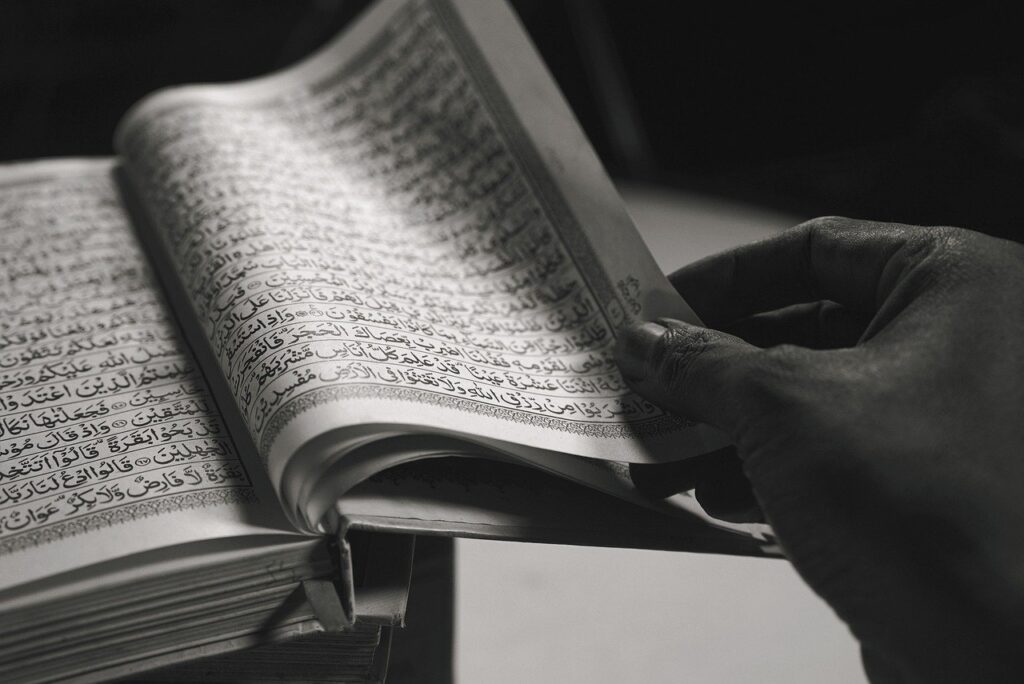
Common verses used in ruqyah for marriage issues include:
- Surah Al-Falaq (113) – for protection from envy and the evil eye.
- Surah An-Naas (114) – for protection against jinn whispers and spiritual harm.
- Ayat al-Kursi (2:255) – for divine safeguarding.
- Surah Al-Baqarah (2:102) – which mentions the story of magic in Babylon.
The person performing ruqyah should recite these verses with sincerity, belief, and trust in Allah’s power. Additionally, spouses may perform ruqyah for themselves and their home, ensuring it is done with pure intention and patience.
The Role of Wazaif in Strengthening Marital Bonds
Alongside ruqyah, Islamic wazaif, daily recitations of Qur’anic verses, and authentic duʿāʾ play a vital role in maintaining peace and love between spouses. Regular remembrance (dhikr) fills the home with barakah and tranquility.
Examples of beneficial wazaif include:
- Reciting Ya Wadud (O Most Loving) to foster affection between spouses.
- Reciting Surah Al-Rum, Ayah 21: “And among His signs is that He created for you mates that you may find tranquility in them.”
- Daily reading of Durood Shareef, which brings blessings and softens hearts.
Consistency is key. Therefore, wazaif should be performed with humility and without expecting immediate results.
True healing lies in consistent remembrance and reliance on Allah.For more authentic Qur’anic and prophetic supplications, visit our Rohani Wazaif page.
Practical Steps to Combine Spiritual and Emotional Healing
Spiritual efforts work best when combined with practical action. Couples should communicate openly, forgive easily, and avoid harboring resentment. The Prophet ﷺ emphasized gentleness and patience in resolving disputes.
Here’s a simple plan that combines both spiritual and worldly healing:
- Self-Assessment: Reflect on your own actions and attitude before blaming unseen forces.
- Perform Regular Ruqyah: Recite Qur’anic verses and duʿāʾs daily.
- Read Authentic Wazaif Together: Make dhikr a shared practice between spouses.
- Seek Counseling: Speak to a trusted Islamic counselor or scholar if problems persist.
- Avoid Un-Islamic Practices: Never resort to amulets, charms, or fortune-telling.

This balanced approach strengthens both faith and marital harmony, fostering peace, understanding, and a deeper connection between spouses.
Cases of Healing through Ruqyah & Wazaif for Marriage Problems
Interestingly, many families have experienced emotional and spiritual relief through consistent ruqyah and wazaif. For instance, a wife once reported that after months of unexplained anger and distance, she and her husband began reciting Surah Al-Baqarah regularly. Consequently, within weeks, peace returned to their home.
Such stories remind us that spiritual healing, when rooted in the Qur’an and Sunnah, brings real and lasting comfort. Yet, one must always avoid exaggeration. Healing comes only from Allah.
Ethical and Shariah Boundaries
While seeking spiritual healing, Muslims must ensure that no forbidden acts are committed. Islam prohibits any form of shirk, charms containing unknown symbols, or seeking help from jinn. Even the Prophet ﷺ said that whoever wears an amulet commits an act of shirk. True protection and peace can only come through lawful means, not superstition.
Moreover, for deeper insight into the Islamic perspective of ruqyah and its conditions, refer to this authentic article by Islam Q&A: Permissibility of Ruqyah.
Conclusion
Indeed, marital problems can test one’s patience and faith. Yet, through sincere Ruqyah, regular Wazaif, and honest communication, healing is possible. Islam teaches that love and peace between spouses are among Allah’s greatest signs.
When difficulties arise, believers should turn first to Allah, follow authentic teachings, and trust His wisdom. Every prayer, every verse, and every sincere duʿāʾ brings light to hearts that seek guidance.
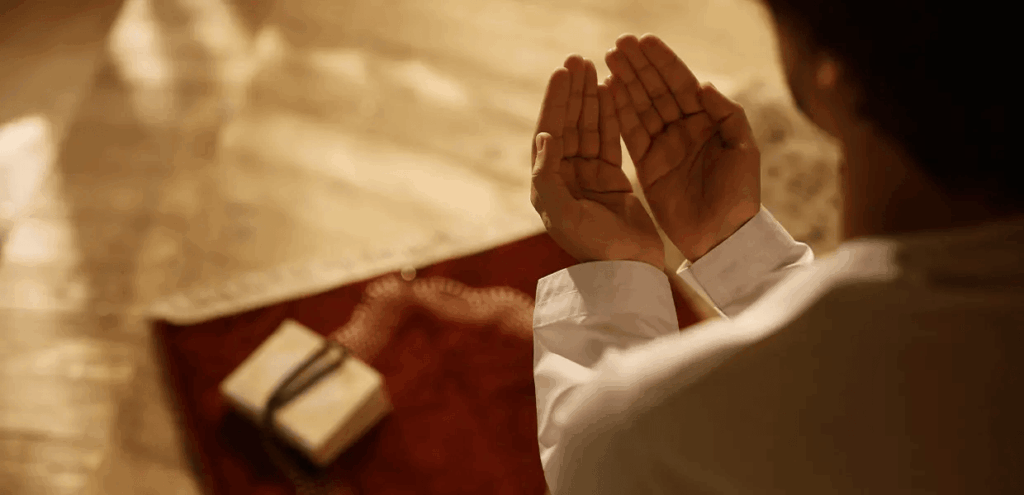
Wazaif in Islam: Daily Duas for Peace
In Islam, remembrance of Allah (dhikr) and recitation of authentic supplications (wazaif) play a vital role in a believer’s spiritual life. Indeed, these practices are not merely traditions; they are acts of devotion that protect, purify, and strengthen the heart. Through this consistency, dhikr, duʿāʾ, and daily wazaif help Muslims gain tranquility, divine protection, and spiritual clarity.
In this blog, we’ll explore what wazaif are, their Qur’anic and Prophetic foundations, the correct way to perform them, and the immense spiritual benefits they bring. You’ll also learn which wazaif are recommended for protection, healing, and blessings, all rooted firmly in the Qur’an and Sunnah.
What Are Wazaif in Islam?
Essentially, the word wazifa (plural: wazaif) means “a prescribed portion.” In Islam, it refers to specific Qur’anic verses or authentic supplications that Muslims regularly recite for spiritual or worldly benefit. Furthermore, these may include adhkar, duas, or the names of Allah (Asma ul-Husna) that serve as reminders and sources of divine protection.
Performing wazaif is a practice encouraged throughout the Islamic tradition. However, it must always be done within the framework of Shariah, with sincerity, and without associating partners with Allah.
Qur’anic Foundation of Wazaif in Islam
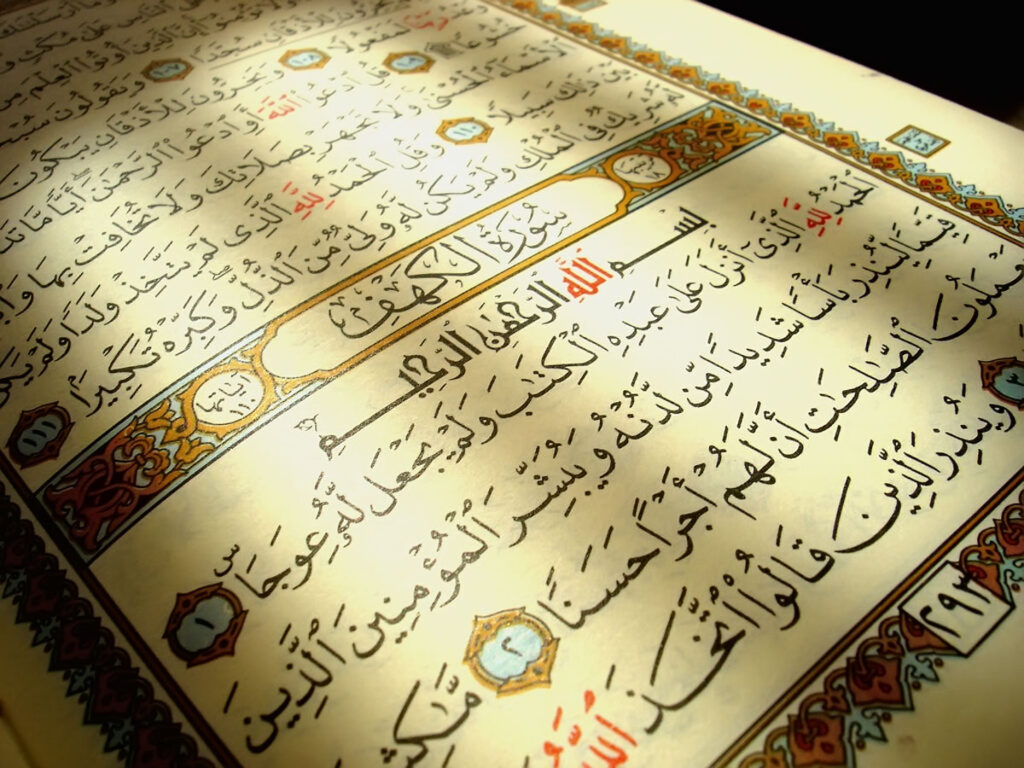
Allah ﷻ says in the Qur’an:
“O believers! Always remember Allah often, and glorify Him morning and evening.” (Surah Al-Ahzab 33:41–42)
This verse emphasizes the importance of regular remembrance not as a ritual, but as a continuous act of devotion. Moreover, every act of remembrance strengthens faith and guards the believer from spiritual and emotional harm.
Prophetic Teachings on Daily Supplications
Truly, the Prophet ﷺ was the greatest example of remembrance. From dawn to dusk, his entire day, from waking up to sleeping, reflected authentic duas and dhikr. Moreover, these supplications were not random words; they were structured prayers that brought calmness, focus, and divine assistance.
`Abdullah bin Busr (ra) narrated that:
A man said, “O Messenger of Allah (ﷺ), indeed, the legislated acts of Islam have become too much for me, so inform me of a thing that I should stick to.” He (ﷺ) said: “Let not your tongue cease to be moist with the remembrance of Allah.”
(Jami` at-Tirmidhi 3375)
The daily wazaif and duas of the Prophet ﷺ included recitations for protection, forgiveness, and gratitude. By following his Sunnah, Muslims ensure their spiritual routine aligns with authentic Islamic guidance.
Daily Wazaif for Protection and Blessings
Consistency is the key. When done sincerely, daily wazaif serve as a spiritual armor against anxiety, evil influences, and misfortune. Therefore, here are a few of the most authentic and powerful daily wazaif in Islam:
1. Morning and Evening Adhkar
The Prophet ﷺ emphasized remembrance during early morning and before sunset.
Examples include:
- Reciting Ayat-ul-Kursi (Surah Al-Baqarah 2:255)
- Reciting Surah Al-Ikhlas, Al-Falaq, and An-Nas three times
- Saying:
“Bismillahi alladhi la yadurru ma‘a ismihi shay’un fi al-ardi wa la fi as-sama’i wa huwa as-sami‘u al-‘alim.”
(In the name of Allah, when Whose name is mentioned nothing on Earth or in Heaven can cause harm, and He is the Hearer, the Knower)
(Sunan Abi Dawud 5088)

2. Wazaif in Islam for Peace of Heart
Dhikr of ‘La ilaha illa Allah’ and ‘Astaghfirullah’ brings inner tranquility and forgiveness.Indeed, Allah loves those who constantly turn to Him in repentance. Regular repetition of SubhanAllah, Alhamdulillah, Allahu Akbar strengthens mindfulness and gratitude.
3. Wazaif for Protection from Evil Eye and Jinn
- Recite Surah Al-Falaq and Surah An-Nas three times daily.
- Blow on your hands after reciting them and wipe your body, as practiced by the Prophet ﷺ (Sahih Bukhari 5016).
- Recite Ayat-ul-Kursi before sleeping for protection throughout the night.
Spiritual Benefits of Performing Wazaif
remains content even in the face of difficulty. Some key benefits include:
- Spiritual Protection – Guards against sihr (black magic), evil eye, and shayatin.
- Inner Peace – Regular dhikr removes anxiety and fills the heart with serenity.
- Forgiveness of Sins – Dhikr and repentance purify the heart.
- Increased Barakah – Invoking Allah’s names attracts blessings in wealth, time, and health.
- Strengthened Connection with Allah – Builds closeness with the Creator through remembrance and love.
Narrated Abu Musa:
The Prophet (ﷺ) said, “The example of the one who celebrates the Praises of his Lord (Allah) in comparison to the one who does not celebrate the Praises of his Lord, is that of a living creature compared to a dead one.” (Sahih al-Bukhari 6407)
Conditions for Acceptable Wazaif in Islam

Indeed, not every wazifa circulating online or in communities is authentic. Therefore, to ensure your practice stays legitimate and pleases Allah, follow these guidelines:
- Rooted in Qur’an or Sunnah: Only recite supplications proven in authentic sources.
- Understand the Meaning: Reflect on the words; dhikr without understanding lacks depth.
- Avoid Innovations (Bid’ah): Do not invent formulas or count repetitions without a basis.
- Rely Only on Allah: Believe that healing, blessings, and protection come solely from Him.
- Consistency and Purity of Intention: Do it sincerely for Allah’s sake, not for material gain.
Common Misconceptions About Wazaif in Islam
1. Wazaif as Magical Spells
Some people mistakenly view wazaif as magical formulas that guarantee instant results. However, the power lies not in the words alone but in the faith, sincerity, and intention behind them.
2. Selling Wazaif for Money
The commercialization of wazaif contradicts Islamic ethics. Moreover, authentic supplications are free for all believers. Therefore, seeking monetary benefit from sacred verses goes against the Sunnah.
3. Expecting Immediate Results
Wazaif are acts of worship, not transactions. The believer must maintain patience and trust in Allah’s timing. Continuous remembrance brings long-term peace, even if worldly issues take time to resolve.
How to Incorporate Wazaif Into Daily Routine
- Start and End the Day with Dhikr: Make morning and evening adhkar a habit.
- Set a Specific Time for Recitation: Even five minutes daily builds consistency.
- Reflect on the Meaning: Focus on Allah’s mercy and greatness during recitation.
- Avoid Distractions: Choose a peaceful environment for your daily remembrance.
- Use a Wazifa Journal: Record daily recitations and reflections.
Moreover, transitioning from random recitation to a structured wazifa routine transforms spiritual life, as it increases mindfulness, strengthens faith, and deepens reliance on Allah.
Authenticity in Wazaif: Following Qur’an and Sunnah
The Prophet ﷺ and his companions followed precise and meaningful supplications. Innovation in this field leads to deviation. Therefore, always ensure your wazifa follows authentic evidence from the Qur’an and Sunnah.
You can find scholarly explanations about authentic wazaif and dhikr on reputable Islamic sites such as IslamQA.info, a trusted resource for understanding verified religious practices.
Wazaif in Islam for Healing and Relief from Hardships
Many Muslims recite specific verses or duas during distress, illness, or grief. Among the most beneficial are:
- Surah Al-Anbiya (21:83–84) — the dua of Prophet Ayyub (AS) for relief from pain.
- Surah Al-Baqarah (2:286) — a reminder that Allah never burdens a soul beyond its capacity.
- La hawla wa la quwwata illa billah — a phrase the Prophet ﷺ called a treasure from Paradise (Sahih Muslim 2704).
These verses and supplications renew faith, strengthen patience, and remind believers of Allah’s mercy in trials.
Avoiding Misuse of Wazaif in Islam
Misinterpretation of wazaif can lead to superstition. For example, writing Qur’anic verses on paper and wearing them without understanding or reading them is discouraged by many scholars unless done under Shariah guidelines.
Islam encourages active remembrance, reciting, reflecting, and living by the meanings of Allah’s words rather than relying solely on physical objects.
Connecting With Authentic Online Resources
If you wish to learn and perform authentic Qur’anic and prophetic wazaif, you can explore them at Roohani Ilaj Center’s Online Wazaif. This platform provides accurate, Shariah-compliant supplications that can help you build a routine rooted in the Sunnah while avoiding innovation or cultural distortions.
Therefore, in this guide, you’ll discover daily wazaif for protection, peace, and blessings that consistently strengthen your connection with Allah ﷻ.
Conclusion
Wazaif are powerful tools for spiritual healing and divine protection, but only when practiced with sincerity, knowledge, and adherence to the Qur’an and Sunnah. They help believers stay mindful, patient, and grateful, even in life’s hardest trials.
Therefore, as you continue this journey of remembrance, keep your heart connected to Allah. Moreover, strive to make your wazaif a source of strength, not superstition.
Ultimately, may Allah bless every believer who remembers Him with a pure heart, and may He protect us from harm while filling our lives with peace and barakah.
